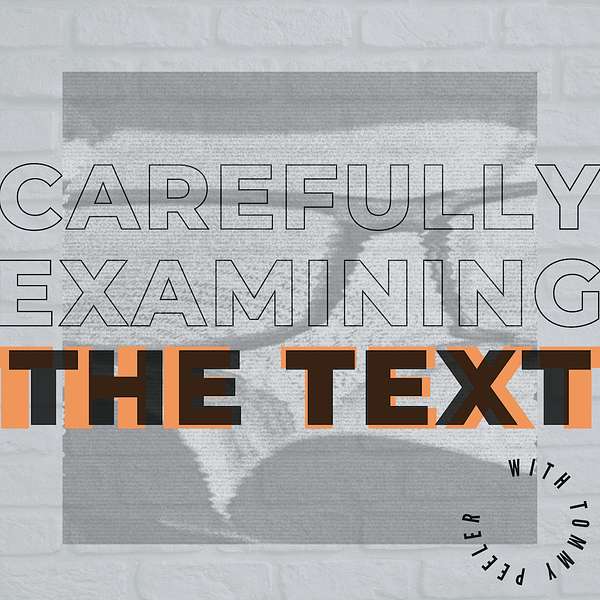
Carefully Examining the Text
Carefully Examining the Text
Psalm 123
Use Left/Right to seek, Home/End to jump to start or end. Hold shift to jump forward or backward.
Psalm 123 A Song of Ascents
“Verses 1-2 are written in the tone of a psalm of trust, but 3-4 are in the form of a community lament.
123:1 To You I lift up my eyes- 121:1; Lifting up eyes can indicate arrogance- II Kings 19:22; Ps. 131:1 but here they are lifted up to God and not against Him.
“To phrase ‘to You’ is in the emphatic position, suggesting the psalmist’s complete orientation to God” McCann, 1187.
O You who are enthroned in the heavens- Pss. 2:4; 11:4; 115:3, 16; 135:15 “His faithful love and wisdom are equally beyond our calculating (Ps. 36:5; Is. 55:9)” Kidner, 435. “The Lord whose heavenly throne (1) speaks of His endless resources as well as His worldwide sovereignty” Motyer, 573.
123:2 Behold, as the eyes of servants look to the hand of their master- “The eye symbolizes longing, need, expectancy” Motyer, 573.“They await some provision for their own benefit.
As the eyes of the maid to the hand of her mistress- “Everyone in this community, man and woman, looks urgently to God for a sign of grace” Alter, 441.
So our eyes look to the LORD our God- “God’s people are in the position of ‘servants’ (see Pss. 34:22; 69:35-46; 113:1; 116:16)” McCann, 1187. This shows their humility before God. Israel looks for the good hand of the LORD- Ezra 7:6, 9, 28; 8:18, 22, 31. “The simile certainly emphasizes the psalmist’s utter dependence on God, like that of slaves on their master” Longman, 419.
“The repetition of ‘eyes’ which occurs in each of the four poetic lines in vv. 1-2, is another instance of the steplike pattern that characterizes the Songs of Ascents (see Pss. 120:5-7; 121:1-4, 7-8; 122:2-5)” McCann, 1187.
Until He shall be gracious to us- This is another example of the steplike parallel pattern (climactic parallelism).
123:3 Be gracious to us- Pss. 4:1; 6:2; 9:13; 25:16; 26:11; 27:7.
For we are greatly filled with contempt- We are not told who gives the scorn, the actual things said, nor the reason for it. “Superlatives are used here and in vs. 4 to indicate the overabundance of scorn and contempt they have received” Miller, 402.
123:4 Our soul is greatly filled with the scoffing of those who are at ease- Lam. 3:30ff., 33.
And with the contempt of the proud- Proud are enemies of the psalmists in Pss. 94:2; 140:5. There is a strong contrast in the Psalm. It begins with “to You” and ends with “the arrogant”- VanGemeren, 783.
Jesus and Psalm 123
123:2, 3 Lord- The term used in the LXX is κυριος and it is used of Jesus in many NT passages including Matt. 7:21, 21, 22, 22; Luke 6:46, 46. The word is used over 700 times in the NT and many of them are of Jesus. He is LORD and we are utterly dependent upon Him for salvation and all blessings.
123:2 Servant- in the LXX is the term δουλος and it is used of the NT writers in Rom. 1:1; James 1:1; II Peter 1:1; and Jude 1. It is used of all Christians in Romans 6:16-23. It is used of Jesus in Philippians 2:7. Jesus, who is addressed as Lord, is also a servant. The LORD became a servant to show us mercy. We are totally dependent upon His mercy for salvation.
123:2, 3 Have mercy upon us- The word used was addressed to Jesus in Matt. 9:27; 15:22; 17:15; 20:30-31; Mark 10:47-48; Luke 17:13; 18:39. As these begged for Jesus to have mercy upon them, we are beggars who fall before Him totally dependent upon His mercy.
When God takes flesh in the person of Christ, Jesus, who was God became a servant- John 13:1-17; Phil. 2:5-8.